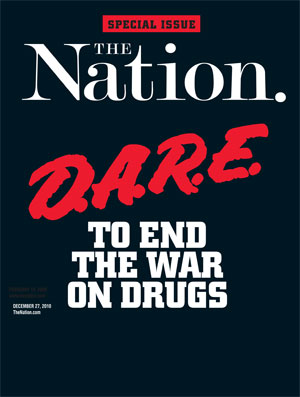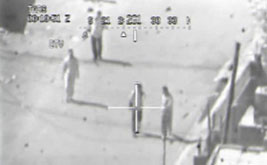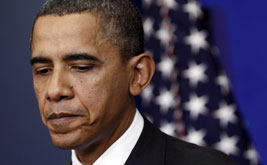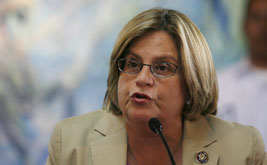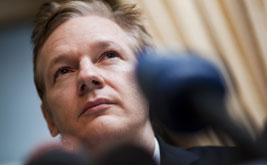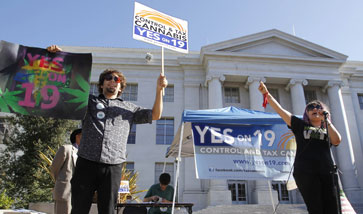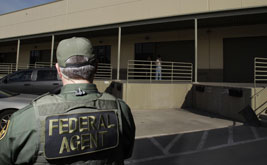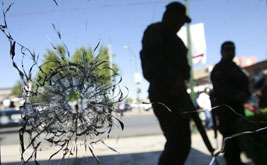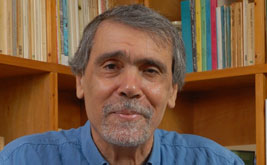Brooklyn, N.Y. Beneath its facade of unassailable erudition, David Wallace-Wells's article on Lewis Hyde ["The Pirate's Prophet," Nov. 15] bears all the markings of that most unserious of critical genres: the hit piece that doesn't even bother to get its facts right. Wallace-Wells seems determined to portray Hyde—erroneously, sneeringly—as some starry-eyed Romantic, and he isn't above misrepresenting the evidence to achieve his ends.
As the author of a profile of Hyde on whose reporting Wallace-Wells sometimes relies, I feel a duty to point out one particularly egregious misrepresentation. Wallace-Wells writes that Hyde's new book, Common as Air, "peddles an attractive but confected fantasy" about the pre-modern English agrarian commons. To support this claim, he cites "what the historian Jackson Lears has called Hyde's 'prelapsarian vision,' one that is 'common to some Marxists, most romantics and all Christian nationalists: Once upon a time, people lived in harmony with their world and one another; then they fell from grace—prodded by capitalism, scientific rationality or original sin.'" These remarks by Lears appeared in a 1983 Nation review of Hyde's landmark book The Gift; they follow Lears's summary of a chapter in it devoted to a history of usury. Lears's remarks read: "Summarized quickly, this view of history seems threadbare. It is a prelapsarian vision common to some Marxists, [etc.]... The nostalgia pervading this view makes it an easy target for the slings and arrows of historians, but Hyde sidesteps the volleys. He is well aware of the corruption and cruelty of medieval Christianity, the vicious anti-Semitism that sometimes powered the opposition to usury, the oppressive restraints of tribal community." Lears's point is precisely that The Gift does not join in this widespread "prelapsarian vision." Wallace-Wells is a takedown artist, but takedown is an exacting business, and honesty and accuracy are its prerequisites. DANIEL B. SMITH
Washington, D.C.
It was dismaying to find Lewis Hyde lumped in with copyleft extremists in David Wallace-Wells's review of Common as Air. Hyde's discussion of the founders' debates about what rights in literary property the government should grant makes a refreshing change from contemporary "copyright wars" rhetoric imbued with a strain of cheap moralism in which Wallace-Wells participates.
Hyde points out that the founders sought pragmatic policies that could encourage the making and circulation of culture, always bearing in mind the social costs of monopoly. Wallace-Wells appears commendably interested in keeping culture lively, underneath all that hectic flourishing of his liberal arts education. But while noting grudgingly that Hyde doesn't "denounce copyright writ broadly or...advocate for the abolition of intellectual property entirely," he charges that "these gestures are accommodationist rather than principled" and urges readers to explore fair use within copyright as an alternative to rejectionism. Hyde has done just that, as an active contributor to three projects to create codes of best practices in fair use that we run at American University (centerfor
socialmedia.org/fair-use), for online video creators, media literacy teachers and poets (the last one is forthcoming).
Fair use is only one of the structural features of copyright that constrain monopoly, including term limitation, the distinction between idea and expression, and users' rights to resell their purchases. If the framers' vision is to be realized, these must be reinvigorated, while recent disfiguring additions to the law, such as proliferating statutory damages, are reconsidered. Far from being a disguised call to abolish copyright, Common as Air is an ideological blueprint for returning this important body of law to its proper place.
PATRICIA AUFDERHEIDE
PETER JASZI
Cambridge, Mass.
In Common as Air, Lewis Hyde makes just the sort of argument American society needs right now: an argument about the "mixing of private sovereignty and public service," about how to create "a social market, one constrained by moral concerns." With respect to intellectual property—and virtually every other kind—the balance between public and private has been badly skewed in recent decades, an imbalance driven largely by corporate propaganda and lobbying. With unshowy erudition and analytical scruple, Hyde sets this development in historical and philosophical perspective, at the same time acknowledging that "if there is no [intellectual property], there is no way to make money and thus...o incentive to produce," so that "legally bestowed exclusive rights" can "actually enrich the commons."
Hyde's ingenuity and nuance were unfortunately lost on David Wallace-Wells, in whose view Hyde is a romantic-anarchist buccaneer, a giddy celebrant of cultural "piracy," advocating "the plundering of culture," eager to "deprive artists of their right to profit from their work" in order to "make that work available to others," determined to "obliterate ownership to preserve access." Blinded by a "fundamental antipathy to the market," Hyde ignores the need of "those working in the arts to secure their livelihood from that work" and forgets that "to support culture we must find ways to support those who make it." Hyde and his fellow "digital Maoists" even want artists to refuse "royalty payments and song-writing credits."
None of this is true; Hyde says the opposite, clearly and often. Common as Air is as cogent and eloquent a meditation on the sorry state of cultural commerce in America as anyone could hope for. One might have expected uncomprehending jeers in Reason or Wired, but not in The Nation.
GEORGE SCIALABBA
Wallace-Wells Replies
New York City
Daniel B. Smith is right to point out that Jackson Lears was admiring in his 1983 review of The Gift, and that Lears was careful to argue, in it, that Hyde was too nimble a thinker to succumb to the charms of a "prelapsarian vision," even if his worldview resembled it in its broad outlines. I disagree that Hyde avoided succumbing, but that context should certainly have been made clear, and I apologize for the mistake, both to Hyde and to Lears.
I've been heartened to read the heated response to my review of Common as Air, in these letters and elsewhere, because I share with Hyde and many of his comrades a sense that the health and well-being of culture is under new threat in our shape-shifting marketplace. Hyde is not as naïvely utopian as some of the free culture champions—he acknowledges the legitimacy of pragmatic objections to a truly "free" regime of cultural ownership—but he shares with the most radical of them a problematic, collectivist ideal: a guiding belief that "art and ideas, unlike land or houses, belong by nature to a cultural commons, open to all" and that "if the monopoly privileges that we've granted to 'content providers' stand in the way of" the self-erasing participatory cultural regime he calls "true citizenship," "then the privileges should be called into question."
But a campaign to defend culture should not begin from first principles that question the status of creative work as intellectual property, encourage artists and writers to provide their labor at no cost out of distaste for the market or undermine their ability to profit from that labor. If we truly believe in the value of artistic work, we must find ways to reward it, and sustain those engaged in it, rather than impoverishing culture in order to make it "free."
Not all members of the free culture movement share all of these perverse impulses; as I wrote previously, the movement is a loose alliance that includes anarchistic hackers, bottom-line businessmen and entrepreneurs, and self-styled iconoclasts in music, writing and art, some of them more reckless in their advocacy than others. But their common cause, promoting cultural production and exchange outside the marketplace from which we draw our daily bread, amounts to little more than a quixotic resistance to those market forces arrayed against culture. This campaign does not constitute a true battle against those same forces so much as a principled capitulation to them.
DAVID WALLACE-WELLS Read More
Our Readers and David Wallace-Wells
